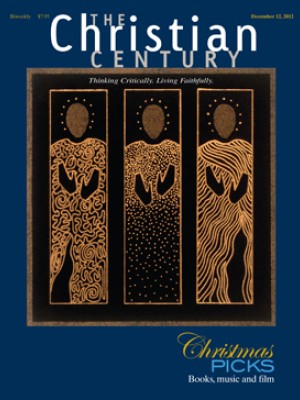Popular music
The Blanco Sessions, by Janis Martin. In 1956, RCA signed “the female Elvis,” 15-year-old rockabilly pioneer Janis Martin. But a secret marriage and a pregnancy soon led the label to drop her. In 2007, neo-rockabilly powerhouse Rosie Flores coaxed Martin out of retired obscurity and produced a comeback album for her. Martin died later that year, and Flores has finally raised the funds to release the project. Martin sounds fantastic on this set of mostly classic material. Her range dropped a bit over 50 years, but her rhythm and phrasing are as punchy as ever. The sound is entirely retro: loud vocals, loose arrangements, loads of reverb. And the hotshot band and modern recording technology make the whole thing sound like the ’50s at their best and better.
Lots, by JG Hymns. On his fourth hymns album, Jon Green uses existing texts alongside original lyrics and instrumental interludes; the music is all original. One point of comparison is the retuned hymns movement, but Green’s intricate compositions are not geared for corporate singing. These are hymns as source material for ambitious art music; their spiritual utility is in contemplative listening, not congregational use. The multi-instrumentalist’s sound palette is sparse but varied: intricate acoustic guitar, layered horns, warm electronics, a little noise. Songs develop slowly, which is trancelike at times if a tad indulgent at others. As for Green’s lyrics, they’re biblical, personal and playfully dramatic. “It is good for the boy to work hard,” he concludes in “The Pause,” a meditation on the Gospels’ ask/search/knock passage. “And it is good that the Lord is our Lord.”
Read our latest issue or browse back issues.
Let It Burn, by Ruthie Foster. Ruthie Foster has a powerhouse of a blues/gospel voice, but she never overpowers a song. She made her newest album in New Orleans with the Blind Boys of Alabama and a cast of top players. It wouldn’t have killed them to restrain the Hammond organ player once in a while, but that’s being picky: the project brings a truckload of soul and grit. Foster contributes two solid songs, but the main event is covers, sometimes dramatically reimagined. “Ring of Fire” fails as a ballad, its lyrics stripped of all danger, and it’s an odd choice to ax the word-painting backbeat on “If I Had a Hammer.” But the swing-blues groove on “You Don’t Miss Your Water” delightfully ups the soul ballad’s energy. In general, Foster offers great and infectious stuff.
Tempest, by Bob Dylan. Any year Dylan releases a record, it’ll likely be on my list. But this is his best work in 15 years. It’s also uncommonly dark, lingering on violence, suffering and death (often juxtaposed, John Donne style, with sexual imagery). Indifferent as ever to pop convention, Dylan turns in several epic-length songs. (The title track is a 45-verse Irish tune about the Titanic.) Dylan’s band sounds warm and relaxed as it moves from rock to old-school blues to soulful ballads. And Dylan’s skills as a singer—I didn’t say “beautiful tone”—remain clear, despite his shrinking range. His most affecting performance is “Roll On John,” a tuneful elegy for John Lennon. Dylan has outlived many peers; creatively, he’s outlasted them all. Now, 50 years after after his debut, mortality is on his mind more than ever.
Sun, by Cat Power. Chan Marshall has struggled with substance abuse, other health problems, crippling stage fright and financial issues. She used to be notorious for her erratic performances, but her old records are invariably edgy, emotive gems of folk-tinged indie rock. Marshall’s first album of original material in six years is a sharp departure; it’s also her best yet. The upbeat, even dancey set features electronic drums, prominent synths and sparkling piano parts. Yet her writing, singing and playing (every note is Marshall) are as intense as ever, and while the styles jump around, the consistent thread is a compressed, in-your-face sound. The lyrics pack a self-critical punch as well—even “Ruin,” an introspective song about wanderlust, gets this refrain: “Bitchin’ / Complainin’ / When some people ain’t got shit to eat.”
A Wasteland Companion, by M. Ward. Ward’s solo albums reveal that he surpasses his more-famous collaborators (Conor Oberst, Zooey Deschanel) on all fronts. His sound is both inventive and a whole bunch of kinds of old-fashioned, filtering his folk, old jazz and early rock ’n’ roll fascinations through adventurous writing and arranging. In “I Get Ideas,” Ward combines scorching rockabilly with jazz-age innuendo: “When we’re dancing and you’re dangerously close to me / I get ideas.” Ward has always pursued themes of spirituality and redemption. “Clean Slate” speaks of the grace that eventually follows pain and despair; elsewhere Ward is similarly upbeat, singing of love and joy. His arrangements explode in dramatic flashes of strings and crystalline piano and vocal oohs, but they never get too big or last too long. His songs surprise and delight without losing their essential intimacy.
Pull It Together, by Shannon Stephens. On her third album, Shannon Stephens reins in her chamber-folk experimentalism in favor of a bluesy little band. Her songcraft is best at its most complex, when her melodies and chord progressions dart around a little. “Care of You” is a standout; it locates a darker corner of Americana, throws it a few nice curveballs and wraps up in three minutes flat. Stephens’s lyrics are immediate but more colorful than overly earnest. Most ambitious is the deadpan “Faces Like Ours,” a wry take on the conversational duets of old Nashville. Stephens and guest Will Oldham—whose fine singing shows hers up a little—trade comforting lines about why they’re “gonna be alright” because of the various demographic traits that inflate their chances (e.g., “At least we have white skin”).














